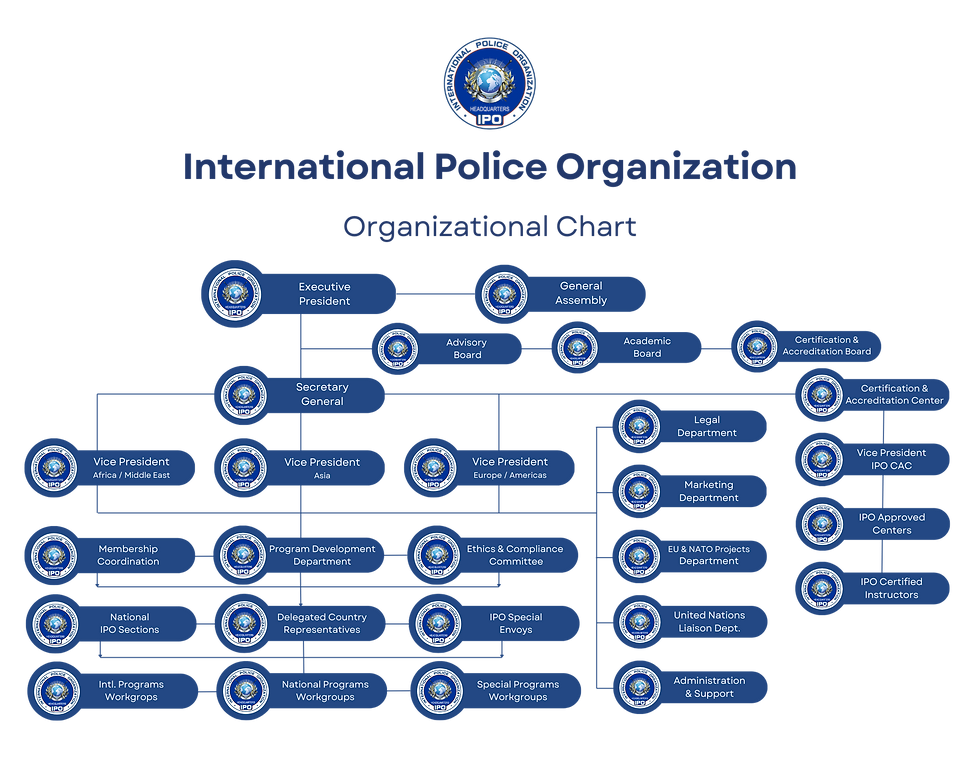IPO DELEGATION AT THE UNITED NATIONS CND 2024
- Mar 18, 2024
- 4 min read
Updated: Mar 25, 2024

Multi-stakeholder discussion on addressing and countering the world drug problem at the sixty-fifth Commission on Narcotic Drugs.
Vienna (Austria), 18 March 2022 — The sixty-fifth session of the Commission on Narcotic Drugs (CND) concluded today after five days of discussions focused on the implementation of international drug control treaties and drug policy commitments.
Ghada Waly, Executive Director of the United Nations Office on Drugs and Crime (UNODC), highlighted in her closing remarks to the sixty-fifth session that "the international drug control system has stood for decades, preventing the misuse of potentially harmful substances, while governing their use for medical and scientific purposes". "The Commission continues to act as a key platform for governments, experts, international organizations, civil society, academia, youth, and all other stakeholders to address the world drug problem," she added.
As every year, the IPO Founder and Honorary President Ass. Prof. Dr. Ilija Zivotic PhD together with the IPO Executive President - CEO Dr. Mareglen Tomori headed the IPO Delegation consisting of our representatives from several countries with whom we had the honor to participate in the United Nations Commission on Narcotic Drugs (CND) in Vienna which began work on March 14 and will last until on March 22.
This important event brought together leaders and experts from around the world to discuss the challenges and opportunities in the fight against drug trafficking and its impact on society.
CND is the decision-making body of the United Nations system with primary responsibility for drug-related issues. Its importance is evident in the participation of representatives of governments, international organizations, and civil society from around the world.
The work of the Commission in its sixty-fifth session
During the week, Member States exchanged views on the implementation of the international drug control treaties and drug policy commitments. Discussions also revolved around the work of the Commission’s subsidiary bodies in Africa, Asia and the Pacific, Europe, Latin America and the Caribbean, and the Near and Middle East. These bodies foster regional exchange among national law enforcement authorities of good practices and lessons learned in addressing and countering the world drug problem.
The session also gave the international community an opportunity to reflect on the Commission’s contributions to the review and implementation of the 2030 Agenda for Sustainable Development. The Commission reviewed World Health Organization (WHO) and International Narcotics Control Board (INCB) scheduling recommendations and decided to place two novel synthetic opioids, one cathinone/stimulant and three fentanyl precursors under international control.
The sixty-fifth session of the CND also adopted four resolutions, covering topics including: alternative development; links between illicit drug trafficking and illicit firearms trafficking; scientific evidence-based early prevention; and diversion of non-scheduled chemicals frequently used in the illicit manufacture of drugs and proliferation of designer precursors.

CND side-events
In the margins of the sixty-fifth session of the CND, over 120 side events were held online on topics including, but not limited to: access to controlled substances for medical and scientific purposes; evidence-based prevention and treatment; incorporating gender and youth perspectives in drug policy; promoting alternative development; countering illicit drug trafficking and addressing links between drug trafficking and other forms of organized crime; ensuring that no one affected by the world drug problem is left behind; addressing new psychoactive substances; strengthening international cooperation; and adapting to the COVID-19 pandemic in addressing and countering various aspects of the world drug problem.
On the opening day of the session, the Commission, together with UNODC, the World Health Organization (WHO) and the International Narcotics Control Board (INCB), held a Joint Call for Action on scaling up the implementation of international drug policy commitments to improve the availability of, and access to, controlled substances for medical and scientific purposes. The Joint Call for Action underscored the importance of sustainable funding in this area, in a bid to ensure that no patient is left behind by the world drug problem.
The CND is the main policymaking body of the United Nations (UN) in drug-related matters and a governing body of UNODC. The Commission is the forum for Member States to exchange knowledge and good practices in addressing and countering the world drug problem.
The Commission’s sixty-fifth session brought together around 1,350 participants representing 129 Member States, 16 intergovernmental organizations, 80 non-governmental organizations, and several UN entities, in-person in Vienna and online around the world. High-level speakers included Collen Vixen Kelapile, President of the Economic and Social Council, WHO Director-General Dr. Tedros Adhanom Ghebreyesus, INCB President Jagjit Pavadia, and Winnie Byanyima, Executive Director of UNAIDS.
In the first 2 days of the conference, our delegates had the opportunity to discuss and share information on current drug market trends, policies, and strategies to address the global drug problem. This was also an opportunity to reaffirm the commitment of our Organization at the United Nations in the fight against the drug problem, as well as to identify challenges and opportunities for the future.
We continue to highlight the values of our experts from different countries by engaging in activities at this high international level where the IPO was present with a delegation of 10 people respectively from Italy, Slovenia, Serbia, and Albania.
On behalf of IPO Headquarters and all Sections around the world, we would like to thank all colleagues of the IPO Delegation who took part in this important event and shared their experiences with us.
IPO News Room






Comments